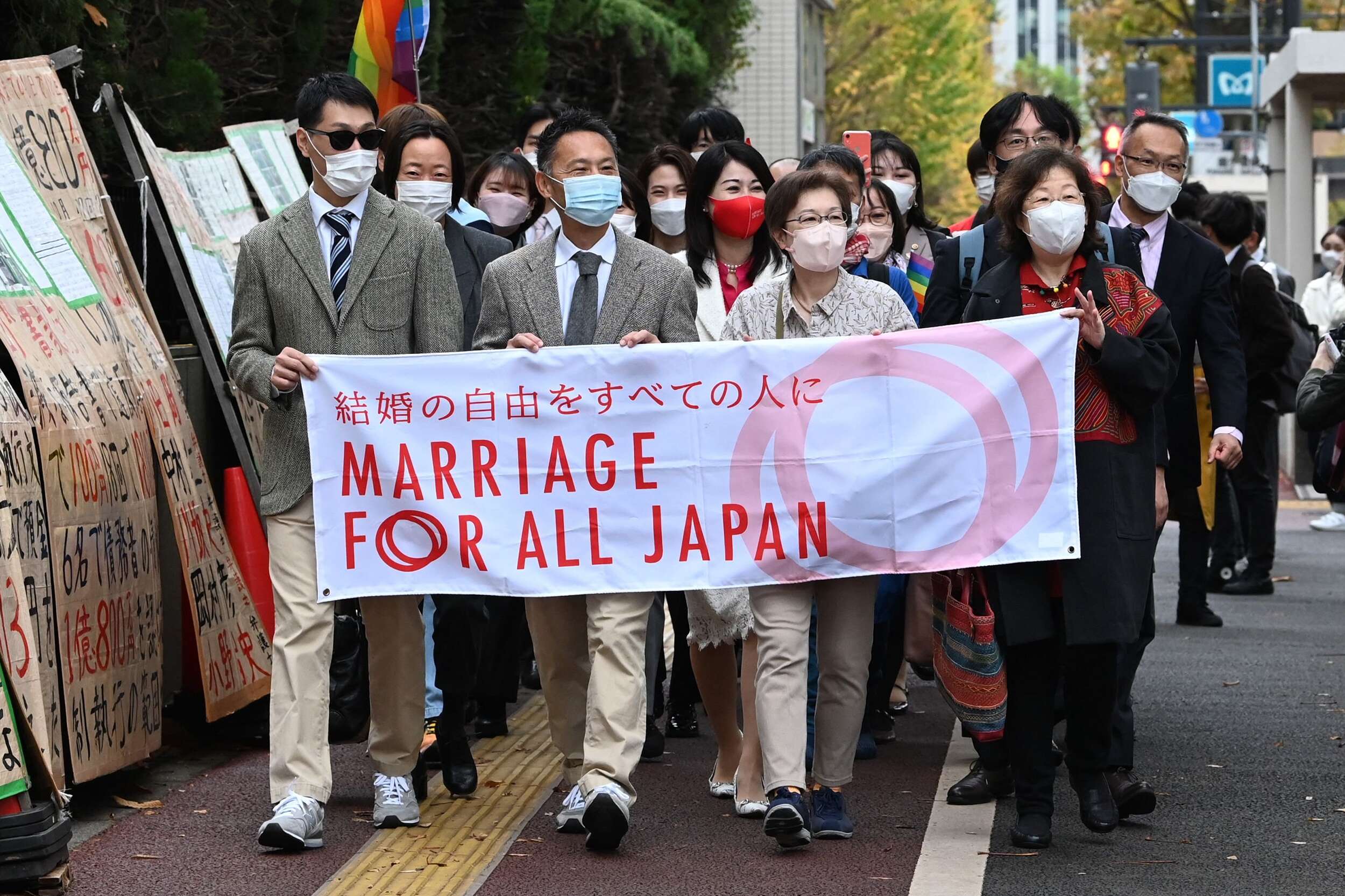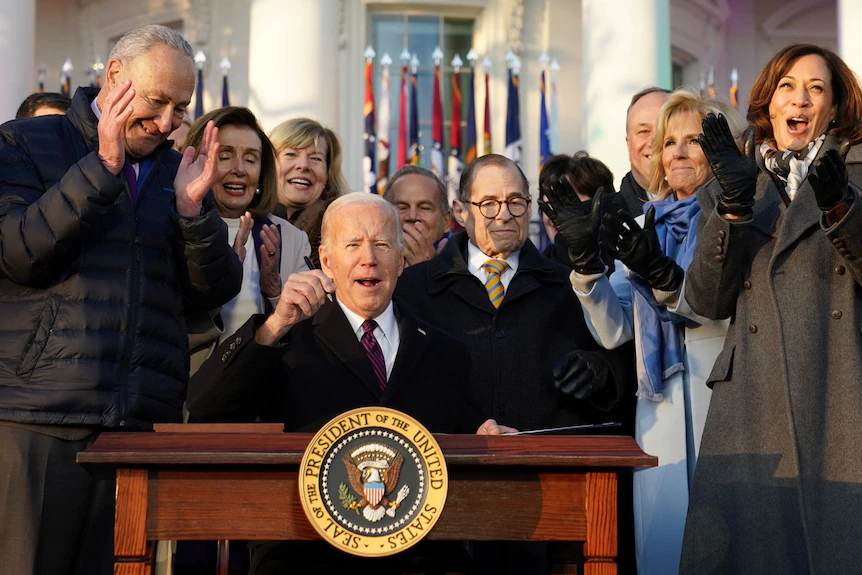
On Wednesday, a Tokyo court upheld the ban on same-sex unions but added that same-sex families’ lack of legal protection violated their human rights. Plaintiffs hailed this statement as a partial victory for LGBTQ couples.
Japan is the only country in the Group of 7 that forbids same-sex unions, and according to its constitution, marriage must be founded on the permission of both sexes.
Even while the ruling party of Prime Minister Fumio Kishida has not yet made any preparations to evaluate the situation or suggest changes, a number of its prominent members are in favour of same-sex unions.
The Tokyo district court ruled on Wednesday that the ban was lawful but noted that same-sex families’ human rights were being violated because there was no legal framework to safeguard them.
One of the attorneys engaged in the lawsuit, Nobuhito Sawasaki, said “This is actually a fairly positive ruling,”
“While marriage remains between a man and a woman, and the ruling supported that, it also said that the current situation with no legal protections for same-sex families is not good, and suggested something must be done about it,” he told Reuters.
In addition to denying them parental rights to each other’s children, Japan forbids same-sex couples from getting married, inheriting each other’s property (such as a home they share), and even seeing each other in the hospital can be challenging.
Although 60% of Japan’s population is covered by partnership certificates from municipalities, same-sex couples do not receive the same rights as heterosexual couples.
As the nation’s capital has a significant impact on the rest of Japan, the Tokyo verdict is expected to have a significant impact.
It had been eagerly anticipated after expectations were raised by a judgement in 2021 in the city of Sapporo that the restriction was illegal, even if a different ruling in Osaka in June upheld the prohibition.
Eight plaintiffs in the case claimed that the ban violated their human rights and sought $7,210 in damages; however, the court denied their request.
Gon Matsunaka, the leader of the campaign group Marriage for All Japan, stated, “This is hard to accept.”
Since everyone is treated equally by the law, he continued, both heterosexual and same-sex couples ought to be allowed to gain equality from the institution of marriage.
The ruling “clearly said that is not possible.”
However, he acknowledged that it was “a big step” to acknowledge the lack of legal protections for same-sex families.
The choice was made a day after the U.S. Senate approved legislation to protect same-sex unions and Singapore lifted its ban on gay sex but with restrictions on the possibility of same-sex marriage becoming legal there.
Even though it is unlikely that this will happen very soon, campaigners and attorneys in Japan are hoping that the two additional cases that are still pending would eventually lead to politicians changing the legislation to allow same-sex marriage.
“I hope there will be legislative debate about this,” said plaintiff Shizuka Oe. “We will keep making efforts.”
As organizations like the American Chamber of Commerce in Japan have noted and called for change, the situation has restricted the talent pool for multinational corporations.
Masa Yanagisawa, head of prime services at the bank Goldman Sachs and a member of the organization Marriage for All Japan, stated that “Thinking about the future of their lives, they don’t see anything in Japan,”
“So they move to more friendly jurisdictions, like the United States.”





